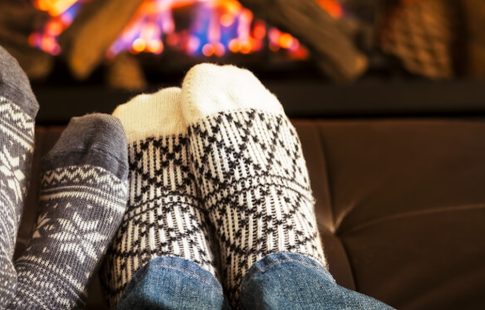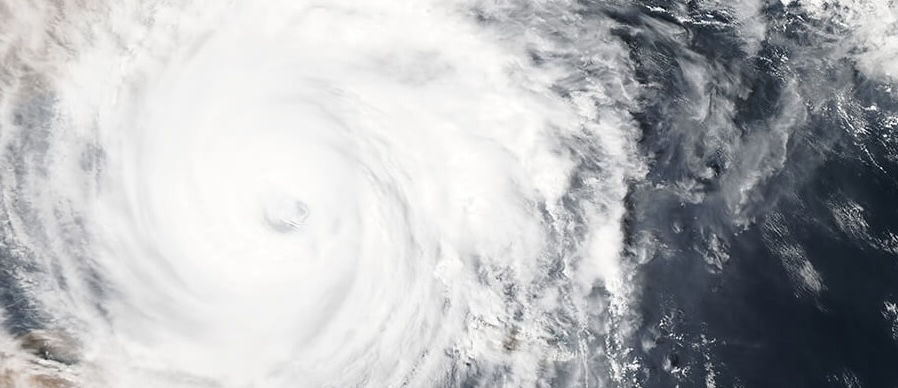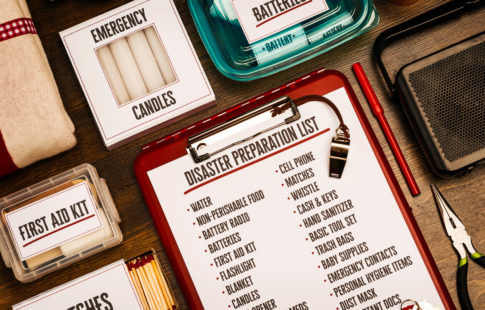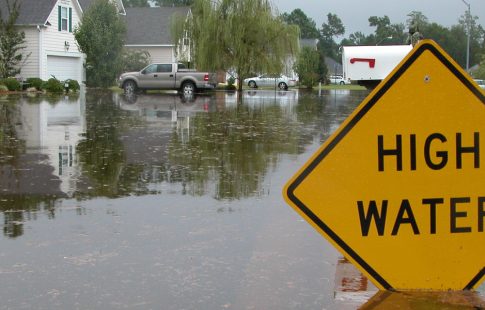Hurricanes affect many parts of the United States each year, damaging homes and buildings, knocking out power and running water, and often posing a major safety threat to people in impacted areas. If you live in an area that could be affected by a hurricane, use this hurricane supplies list to build an emergency hurricane survival kit. This way, you’ll have peace of mind knowing that you have emergency supplies ready in the event of a sudden hurricane.
1. Food and water
During a hurricane, it isn’t uncommon for clean water to become a hot commodity. To ensure that you and your family have enough water, store 1 gallon per person per day for a period of 3 to 7 days. Also store enough nonperishable food for the same amount of time.
2. Flashlight, radio, and batteries
In the event of a power outage, you’ll need flashlights and extra batteries to keep them powered. A battery-operated radio will keep you updated with weather conditions, news updates, and more. Make sure you have enough batteries to operate your most essential battery-powered devices for a period of 3 to 7 days.
3. Cell phone backup batteries
Keep one or several cellphone backup batteries charged and ready to use so you’ll never have to worry about communication during a power outage. Even if you don’t need to call anyone during a hurricane and assuming your provider’s coverage remains uninterrupted, you can use your phone to stay informed about weather conditions and follow evacuation and safety recommendations.
4. Medication & personal essentials
Unsanitary conditions and lack of access to necessary medication or medical supplies can cause additional risks during a hurricane. Consider the items that you and your family will need for personal sanitation and hygiene in a 3 to 7 day period. If any of your family members rely on medical devices, create a continuity plan to make sure their care remains consistent in the event of a hurricane-related evacuation or outage.
5. Waterproof containers
In case of a fire or flooding and water damage, waterproof and fireproof safes and containers can protect your most important documents, such as social security cards, passports, marriage licenses, family photos, and other items. Smaller safes can also be grabbed quickly during an evacuation while still providing a safe place for all of your documents.
6. A portable generator
A portable generator can supply electricity to your home using a gas-powered engine. Since you must run your generator outdoors, consider hiring an electrician to install a transfer switch on your generator. This can provide a safer, more practical alternative to running extension cords between your generator and indoor appliances. Plan ahead so you’ll have enough time to find the right unit for your home.
7. Hurricane Shutters
In extreme winds, failure to protect your windows and doors can cause more internal and structural damage to your home. Using commercial shutters or creating your own with plywood, when done properly, are both effective ways to prevent wind force and flying debris from causing damage.
8. Plastic tarps
If your roof sustains any damages during a hurricane, use plastic tarps to cover any cracks until you’re able to have it properly fixed. Plastic sheeting and duct tape can also work well. Patching up your roof can be dangerous, especially after a hurricane, so be sure to follow proper safety guidelines or hire a professional.
9. Tools for securing & repairing
It’s a good idea to have a drill and screwdrivers handy to install things like hurricane shutters. Purchasing a set of roof and window repair tools, leather gloves, head and foot bolts for doors, and hurricane straps will also help you prepare for damages your home might sustain during the storm.







